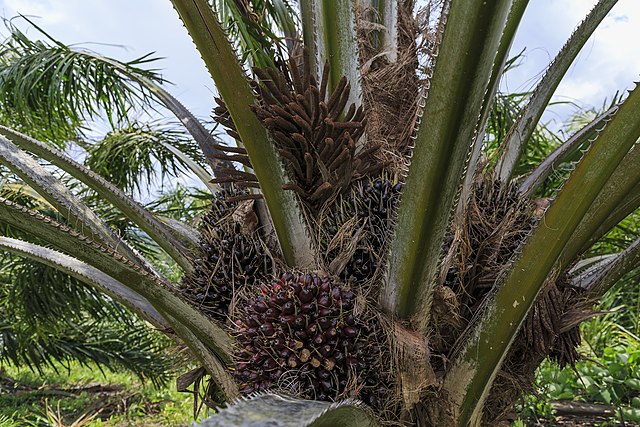
A Scottish research team believes it has developed a groundbreaking alternative to palm oil, often referred to as the “holy grail.”
Palm oil is a ubiquitous ingredient in nearly half of all food and cosmetic products on supermarket shelves, leading to extensive deforestation in regions suitable for oil palm tree cultivation near the equator.
The team at Queen Margaret University (QMU) in Edinburgh has introduced PALM-ALT, a 100% plant-based ingredient that offers significant advantages for the environment and human health.
Compared to palm oil, PALM-ALT is considered 70% more environmentally friendly. Additionally, it boasts health benefits, with 80% less saturated fat and 30% fewer calories, making it a healthier option. PALM-ALT has a mayonnaise-like consistency and does not contain palm or coconut products. It is free of added flavourings, sugar, sweeteners, preservatives, and colourings. The ingredients of PALM-ALT include a by-product from the linseed industry, natural fibre, and rapeseed oil.
Palm oil remains the world’s most produced vegetable oil, comprising 40% of total vegetable oil production, as reported by the World Wide Fund for Nature (WWF). Its popularity among food and cosmetics manufacturers stems from its versatility.
Palm oil is odourless, tasteless, and colourless, making it ideal for products where it should not alter the sensory characteristics. It imparts a smooth texture, acts as a natural preservative, and maintains its properties under high temperatures, making it suitable for cooking and a wide range of products, from chocolate to shampoo, pizza, toothpaste, and deodorant.
The expansion of palm oil cultivation, primarily in Indonesia and Malaysia, has led to significant deforestation, increasing from 3.3 million hectares (8 million acres) in 1970 to 28.7 million hectares in 2020. The global palm oil industry was valued at $62.3 billion in 2021, and it is projected to reach $75.7 billion by 2028 due to growing demand.
PALM-ALT offers an alternative to palm oil, and discussions with potential manufacturers are set to begin, as the product is cost-effective and offers several advantages, making it a compelling option for various industries.
Palm oil’s production has raised environmental concerns, primarily related to deforestation. The cultivation of oil palm trees often involves clearing forests, which leads to a loss of biodiversity and poses a threat to endangered species. Deforestation for palm oil cultivation has contributed to approximately 8% of global deforestation between 1990 and 2008.
This practice can have a devastating impact on the habitats of species like orangutans, rhinos, elephants, and tigers. PALM-ALT’s potential success offers a promising solution to reduce the environmental harm associated with palm oil production.
——————————————————————————
At Natural World Fund, we are passionate about stopping the decline in our wildlife.
The decline in our wildlife is shocking and frightening. Without much more support, many of the animals we know and love will continue in their decline towards extinction.
When you help to restore a patch of degraded land through rewilding to forests, meadows, or wetlands, you have a massive impact on the biodiversity at a local level. You give animals a home and food that they otherwise would not have had, and it has a positive snowball effect on the food chain.
We are convinced that this is much better for the UK than growing lots of fast-growing coniferous trees, solely to remove carbon, that don’t actually help our animals to thrive.
This is why we stand for restoring nature in the UK through responsible rewilding. For us, it is the right thing to do. Let’s do what’s right for nature!
Donate today at https://naturalworldfund.com/ and join in the solution!

